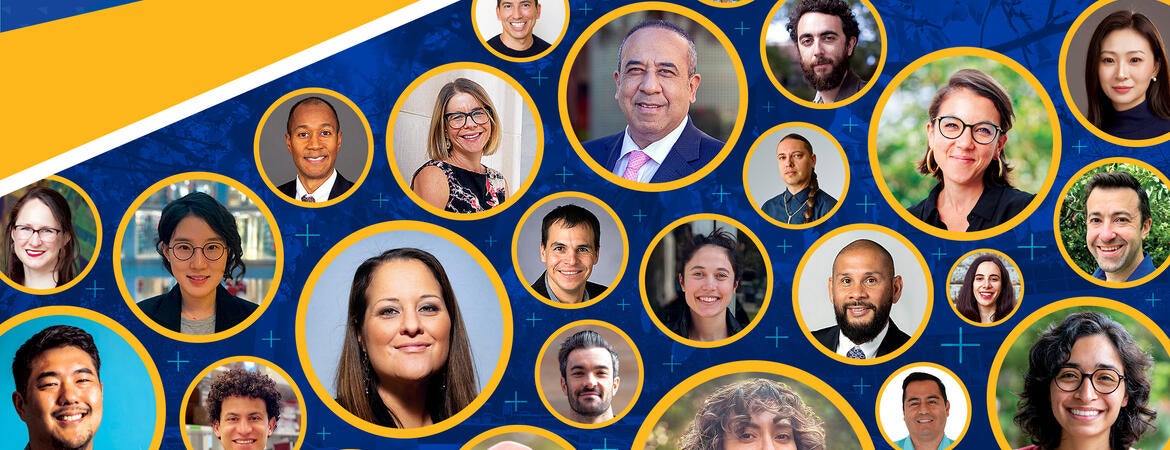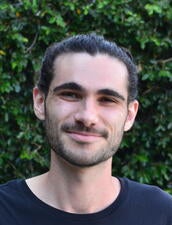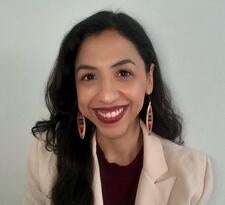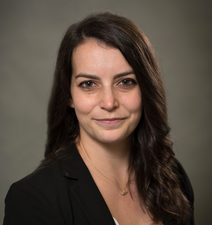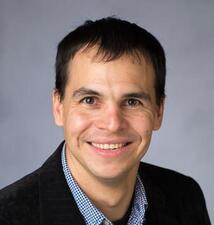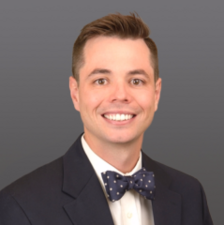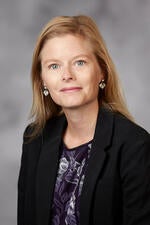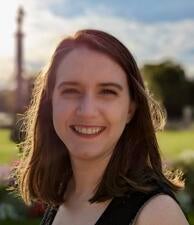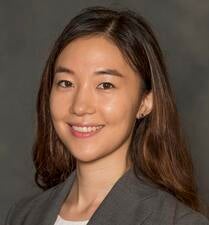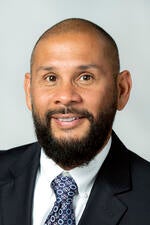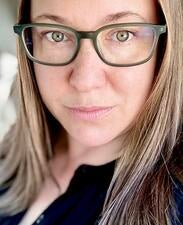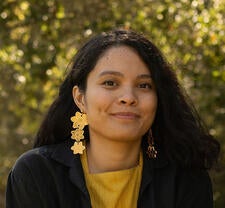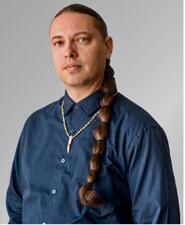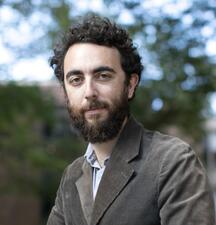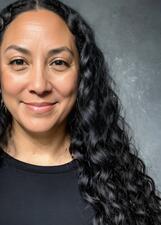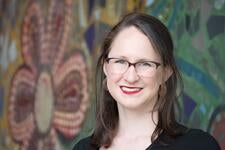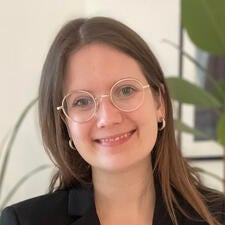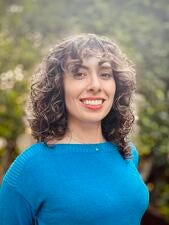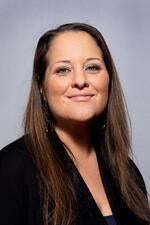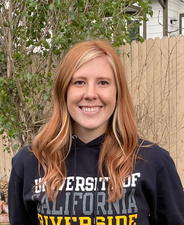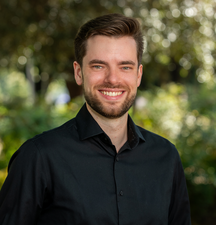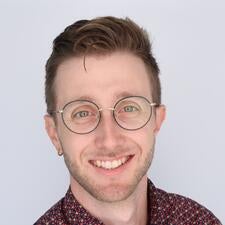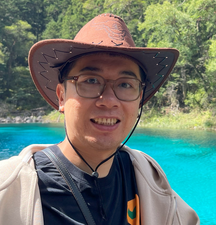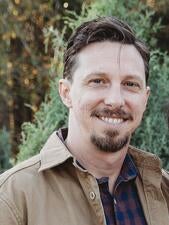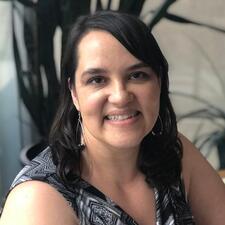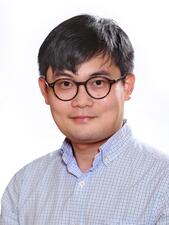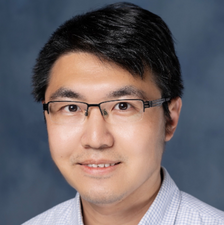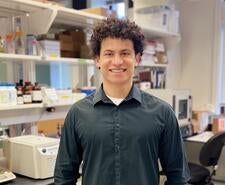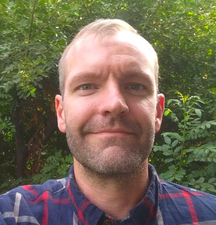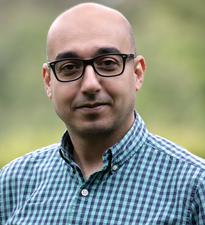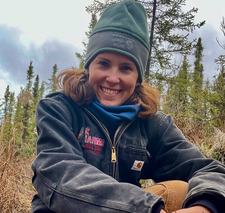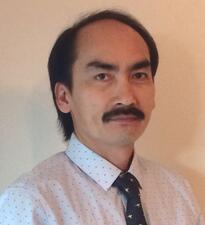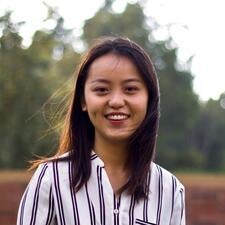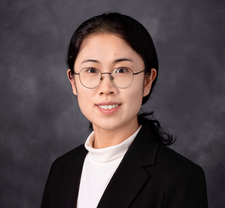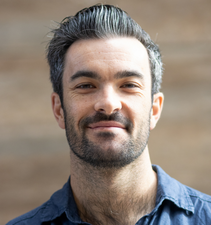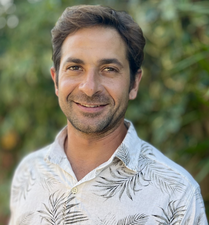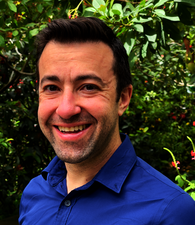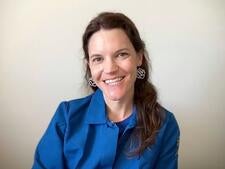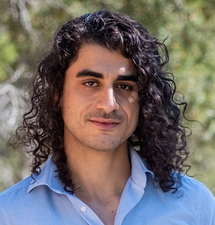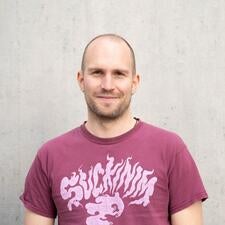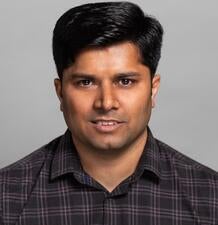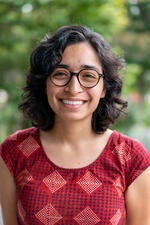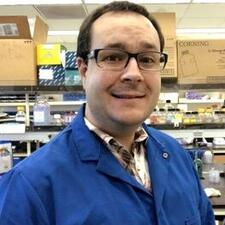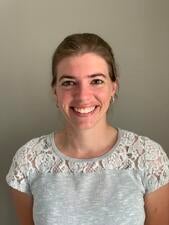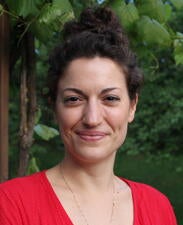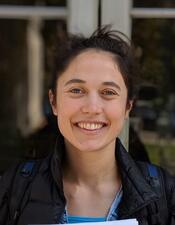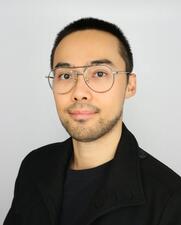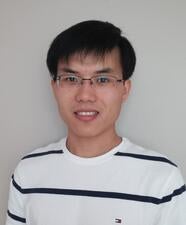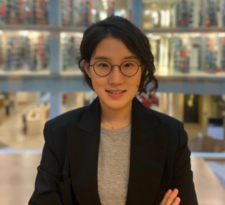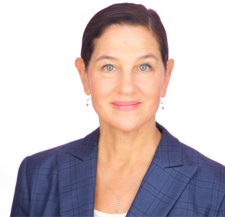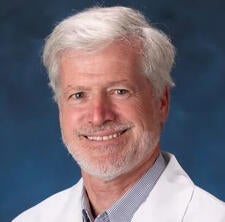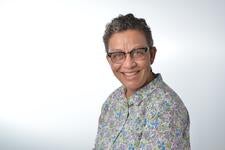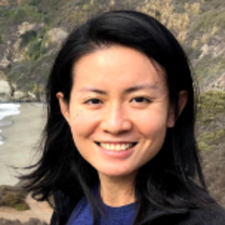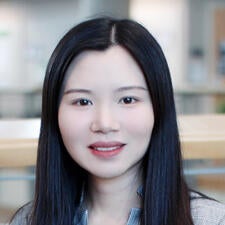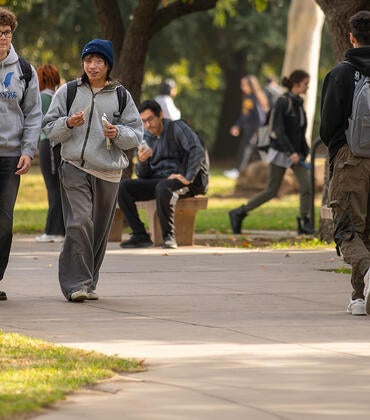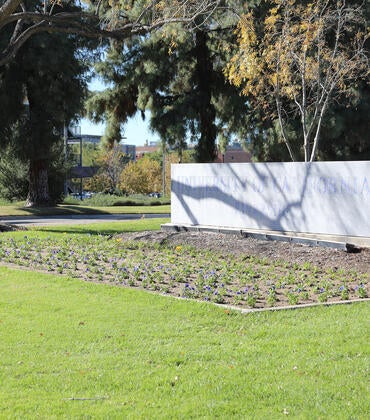UC Riverside welcomed 74 new permanent faculty members for the 2024-2025 academic year who come from a variety of disciplines and research interests.
The new faculty members offer expertise on a wide range of subjects from the economics of immigration to the history of California Indians. Their research covers a wide variety of topics including brain disorders, experimental cosmology, and reducing food safety risks. The new group includes researchers from top universities, a former middle school teacher and grassroots organizer, and a cultural consultant on the “Teenage Mutant Ninja Turtles” movie.
Learn more about the new faculty below:
College of Humanities, Arts, and Social Sciences
Stephen Antonoplis, an assistant professor of psychology, received his doctorate in psychology from UC Berkeley. He specializes in social and personality psychology. His past work has examined personality factors motivating cross-race friendship, how personal income shapes how people think about their futures, and how to best conceptualize and measure socioeconomic status. His current projects include the historical development of class identity in the U.S. and differences in the relationships occupied by different- and same-race contacts in personal networks. He joined the faculty in January.
Alejandra Arce, an assistant professor of psychology, received her doctorate in clinical and community psychology from Georgia State University. Arce conducts strengths- and community-engaged research with immigrant and Black, Indigenous, and people of color youth. Her research aims to advance theoretical and empirical models of resilience and resistance to oppression, create prevention programs, and evaluate community interventions that advance equity efforts.
Olivia Atherton, an assistant professor of psychology, received her doctorate in psychology from UC Davis. Her research intersects between social-personality, health, and developmental psychology. Her primary focus is understanding the associations among self-regulation, sociocultural contexts, and mental and physical health. Her research focuses on diverse populations often underrepresented in psychological science, including Latinx communities and socioeconomically disadvantaged and rural populations.
William Bauer, a professor of history, received his doctorate in history from the University of Oklahoma. An enrolled citizen of the Round Valley Indian Tribes, his research focuses on oral history, labor, and California Indian history. He has authored or co-authored books including most recently “We Are the Land: A Native History of California,” and “California Through Native Eyes: Reclaiming History.” Bauer is the president-elect of the Western History Association. He previously taught at the University of Wyoming and the University of Nevada, Las Vegas. At UCR, he will teach classes on California Indian and American Indian history.
Gene Brewer, a professor of psychology, received his doctorate in psychology from the University of Georgia. With an extensive background in cognitive psychology, his research delves into the mechanisms of attention, memory, and executive control in humans. He previously was a faculty member at Arizona State University where he was recognized for his outstanding teaching and mentoring.
Xiao Chen, an assistant professor of history, received his doctorate in history from the University of Illinois, Urbana-Champaign. He researches Qing and modern Chinese history. His book manuscript explores how Qing colonial practices contributed to the development of a convict labor system that focused on exploiting convicts. Chen has also authored a journal article on how ethnicity became a factor when trying sexual offenses in eighteenth-century Qing legal culture and a book chapter on indigenous Taiwanese skin markings in early modern European and Chinese travel writings. He previously taught at Grinnell College, Iowa.
Kendra Gage, an assistant professor of teaching in history, received her doctorate from the University of Nevada, Las Vegas. She is a historian of the civil rights movement, sports, Olympics, women in the west, and the American West. Her work centers on uncovering stories of political struggle, oppression, and resistance in the everyday landscapes of people’'s communities. She is working on a book manuscript about Black freedom struggles in California history and co-edited “A People’s Guide to Las Vegas.” She was previously an assistant professor at the University of Nevada, Las Vegas.
Emily Graham, an assistant professor of teaching in the Department of Comparative Literature and Languages, received her doctorate from the University of Texas at Arlington where she focused on psycholinguistics and phonetics. In psycholinguistics, she explored sentence-level processing while in phonetics she has published work on phonetic imitation of English sibilants in native and non-native speech. Graham is also an active member of the Linguistic Society of America where she serves on committees devoted to linguistic pedagogy and gender equity in linguistics.
Elizabeth Hanna Rubio, an assistant professor of gender and sexuality studies, received her doctorate in cultural anthropology from UC Irvine. Her ethnographic research builds on her work as a community organizer and cultural anthropologist. She is currently completing a book manuscript examining the politics of multiracial coalition-building based on seven years of research into undocumented Korean American organizers. Rubio is the co-editor-in-chief of the Journal for the Anthropology of North America and has had work published in Amerasia, Frontiers: A Women’s Studies Journal, and the LA Review of Books.
Donggyu Kim, a professor of economics, received his doctorate in statistics from the University of Wisconsin, Madison. He was previously an associate professor in the College of Business at the Korea Advanced Institute of Science and Technology in Daejeon, South Korea. His doctoral dissertation was about high-dimensional matrix inferences.
Ajin Lee, an assistant professor of economics, received her doctorate in economics from Columbia University. An applied microeconomist, she studies health, social insurance, and policies targeting disadvantaged populations in the United States. Her research has explored the design of public health insurance programs, the impacts of financial and health shocks to families, and childhood environment on health and well-being. She was previously an assistant professor at Michigan State University and a visiting assistant professor at the Stanford Institute for Economic Policy Research.
Timothy Petete, an associate professor of teaching in English, received his doctorate in English from the University of Oklahoma. A member of the Seminole Nation of Oklahoma, his teaching and research interests include American literature, Indigenous studies, visual and sonic rhetoric, and memory culture. He is co-editing an issue of Great Plains Quarterly on contemporary Indigenous Pop Art and a book about the FX television series Reservation Dogs.
Heather Rastovac Akbarzadeh, an assistant professor of dance, earned her doctorate in performance studies, with an emphasis on women, gender, and sexuality, from UC Berkeley. Building on two decades as a dance-maker, artistic director, and dramaturg, her research examines diasporic South West Asian and North African communities and their performances undermining colonial ways of seeing the Middle East. Her monograph-in-progress is titled “Choreographing the Iranian Diaspora: Dance, Spectatorship, and the Politics of Belonging.” Rastovac Akbarzadeh joined the faculty in January.
Trisha Federis Remetir, an assistant professor of comparative literature and languages, received her doctorate in English and comparative literature from the University of North Carolina, Chapel Hill. She specializes in critical Filipino studies, Asian diasporic literature, postcolonial studies, and environmental humanities. Her research focuses on the racial and environmental histories of the Philippine archipelago and other sites of environmental struggle through water. She is working on a book exploring how extractive projects around Philippines waters influenced cultural productions. She was a 2022-2024 Chancellor's Postdoctoral Fellow at UCR.
Cassia Roth, an associate professor of society, environment and health equity, received her doctorate in history from the University of Georgia. Her research focuses on understanding gendered and racialized health inequities in the past and present in the Portuguese-speaking world. She is the author of “A Miscarriage of Justice: Women’s Reproductive Lives and the Law in Early Twentieth-Century Brazil.” She has also published work on topics including the Brazilian feminist scientist Bertha Lutz, the recent history of abortion activism in Latin America, and the history of cesarean sections. Roth will teach on the history of public health and health equity.
Charles Sepulveda, an assistant professor of ethnic studies, received his doctorate in ethnic studies from UC Riverside. He studies California Indian histories, focusing on the mission system’s enslavement of Native peoples and their resistance. Sepulveda’s first book, “Native Alienation: Spiritual Conquest and the Violence of California Missions,” will be published this year. Sepulveda is a board member of the Acjachemen Tongva Land Conservancy and the Tongva Taraxat Paxaavxa Conservancy. He previously taught at Cal Poly Pomona, and the University of Utah.
Dylan Shaul, an assistant professor of philosophy, received his doctorate from the University of Toronto. He specializes in 18th- to 19th-century philosophy, mainly German idealism and Jewish philosophy. He is also interested in early modern philosophy, 20th-century European philosophy, ethics, and the philosophy of religion. He has published on figures including Spinoza, Kant, Hegel, and Kierkegaard, on themes including faith, forgiveness, hospitality, love, mourning, recognition, reconciliation, redemption, and repentance. He has also published on tragedy and comedy, from Euripides to Alfred Hitchcock and the Marx Brothers.
Kevin Shih, an associate professor of economics, received his doctorate in economics from UC Davis. A labor economist with expertise in the economics of immigration in the United States, his work has been published in leading economic journals. He previously was at Queens College CUNY, the CUNY Graduate Center, and Rensselaer Polytechnic Institute. He is a research affiliate of the IZA Institute of Labor Economics; the University of California, Davis, Global Migration Center; the CUNY Institute for Demographic Research; and Rice University's Baker Institute for Public Policy. He is a special sworn status researcher of the U.S. Census Bureau.
Daphnie Sicre, an assistant professor in the Department of Theatre, Film, and Digital Production, received her doctorate in educational theatre from New York University. A multi-hyphenate writer, director, and dramatug, she shares a deep passion for Black and Latine perspectives in theatre, especially AfroLatinidad. She is co-artistic director of Ammunition Theatre in Los Angeles and co-directs the Candela Fellowship for Latine and Caribbean Playwrights with the Dramatist Guild in New York. She leads diversity, equity, and inclusivity theatre workshops across the country and serves as a culture consultant for Nickelodeon. She also worked on the Emmy-nominated television series “Santiago of the Seas” and the movie “Teenage Mutant Ninja Turtles; Mutant Mayhem.”
Amy Skjerseth, an assistant professor of music, received her doctorate in cinema and media studies from the University of Chicago. Her research focuses on the intersections of music, media, material culture, and technology. A monograph in progress explores how 1960s transistor radios to 2000s vocaloids and 2020s deepfakes influenced musical and visual culture. She is working on a second book called “The Feminist Wall of Sound.” She has published her work across music and media journals and created video essays and podcasts.
Tabea Springstein, an assistant professor of psychology, received her doctorate in psychological and brain sciences from Washington University in St. Louis. Her research centers on the dynamics of emotion and emotion regulation in everyday life. She is particularly interested in how emotions are experienced and managed across various situations and social contexts and how emotional processes evolve over the adult lifespan. Using experience sampling and passive sensing methods to gather data from individuals in their natural environments, her long-term goal is to uncover individual differences in emotional processes that could lead to targeted interventions to enhance emotional well-being.
Megan Tabaque, an assistant professor of teaching the Department of Theatre, Film, and Digital Production, holds an M.F.A. in playwriting and fiction from the Michener Center for Writers. Tabaque writes to create new mythologies, using pop cultural tropes as accessible entry points. Her work has been produced by the Alliance Theater, The Road Theater, Inner City Arts, Salvage Vanguard Theater, Tofte Lake Center, The Workshop Theater, Seven Devils, Texas State University, and Vanderbilt University. She was a visiting assistant professor at UCR in the winter quarter, previously taught creative writing at Bennington College, and has written for the immersive entertainment company Meow Wolf.
Cecilia Vasquez, an assistant professor of anthropology, received her doctorate in anthropology from the University of Massachusetts Amherst. Her research focuses on grassroots responses to sanctuary policies, detention, and care practices in the Inland Empire. Her areas of interest are citizenship and belonging, accompaniment, and migration. She is working on her book manuscript, “Sanctuary i.e.: Meaning and Future of Sanctuary in the Inland Empire.” Her scholarship has led to a collective of poetry workshops, choreographing the folk opera “Canción del Inmigrante,” and community conferences.
Kēhaulani Vaughn, an associate professor of ethnic studies, received her doctorate in ethnic studies from UCR. A Kanaka ‘Ōiwi scholar, her research engages Pacific Islander and Indigenous feminist theorizations of land, environment, and regeneration. She is working on a book about the trans-Indigenous recognitions between Native Hawaiians living in the U.S. and California Indian tribes. She was previously an assistant professor at the University of Utah where she established the Research Center for Pasifika and Indigenous Knowledges. She co-founded Empowering Pacific Islander Communities which focuses on education, research, and advocacy.
Miriam Venturini, an assistant professor of economics, received her doctorate in economics from the University of Zurich. A political economist and economic historian, her work explores the influence of grassroots organizations on political participation. Her future projects will expand her research focus to labor unions and their impact on the economy and politics.
College of Natural and Agricultural Sciences
Ellie Armstrong, an assistant professor of in the Department of Evolution, Ecology, and Organismal Biology, received her doctorate in biology from Stanford University. Her research focuses on the evolution of large carnivores and the impacts of intense global change on those sensitive populations and global biodiversity. Her lab uses cutting-edge genomic tools to evaluate the genetic health of at-risk species, as well as the general impacts of captivity.
Trevor Bolduc, an assistant professor of teaching in chemistry, received his doctorate in organic chemistry from the University of British Columbia in Vancouver, Canada. During his graduate studies, he instructed second-year students in both major and non-major organic chemistry laboratory courses. His research interests include alternative grading to improve student proficiency and reduce equity gaps, and organic chemistry education app development in support of alternative modes to learning.
Eric Barefoot, an assistant professor of geology, received his doctorate in Earth sciences from Rice University. He studies Earth’s landscapes and sedimentary rocks and is broadly interested in how strata accumulate to create an archive of Earth’s history. He uses modern landscapes to better understand sediment transport processes and rock outcrops to learn about Earth’s ancient past. He develops computer models of sedimentary environments to test hypotheses with scaled laboratory experiments.
Bryan Brown, an assistant professor of computational biology, received his doctorate from Duke University and performed his postdoctoral training at Seattle Children’'s Hospital and the University of Washington. His group will focus on studying and manipulating interactions between endogenous bacteria and viruses and the immune system to improve health outcomes in women and infants.
Xu Cao, an assistant professor of teaching in statistics, received his doctorate in statistics from the University of North Carolina at Charlotte. His research focus is on survival analysis and its applications in various fields including healthcare.
Christopher Catano, an assistant professor of botany and plant sciences, received his doctorate in Ecology & Evolutionary Biology from Washington University in St. Louis. His research seeks to understand how biodiversity and ecological communities respond to environmental change, and the consequences of these changes for ecosystem functioning and resilience. His research integrates approaches spanning experimental ecology, quantitative modeling, and remote sensing to advance fundamental theory and scale up capacities to guide ecosystem restoration and conservation.
Laura Catano, an assistant professor of teaching in the Department of Evolution, Ecology, and Organismal Biology, received her doctorate from Florida International University where she studied marine community ecology. She has taught biology for over a dozen years, most recently at Emory University in Atlanta. She is interested in developing biology curricula with active-learning approaches that promote diversity in science.
Sonali Chaturvedi, an assistant professor of virology, earned her doctorate from UCR. Her group deciphers genetic circuits pivotal in determining viral fates, seeking to leverage an understanding of those design principles to engineer indomitable therapies envisioned to outsmart viral evolution. The group has a particular interest in latency, oncogenesis, developmental disorders associated with DNA viruses and the transmission mechanics of pandemic potential RNA viruses.
Yuzhou Chen, an assistant professor of statistics, received his doctorate in statistics from Southern Methodist University. He is also an adjunct assistant professor in computer and information sciences at Temple University and a visiting research collaborator in electrical and computer engineering at Princeton University.
Steve Choi, an assistant professor of physics and astronomy, received his doctorate in physics from Princeton University. Choi’s research focuses on experimental and observational cosmology, particularly in the development of superconducting detectors for precise observations of the cosmic microwave background, the remnant radiation from the Big Bang. At UCR, Choi plans to develop more sensitive astronomical instrumentation to address fundamental questions about our universe.
Wei-Chun Chou, an assistant professor of statistics, received his doctorate from National Tsing Hua University and completed postdoctoral training at Kansas State University. His research focuses on computational modeling, particularly physiologically based pharmacokinetic models, machine learning, and artificial intelligence in environmental toxicology and human health. He has pioneered AI methods for predicting chemical toxicity and developed models for nanomedicine and protein interactions to enhance tumor delivery. He serves on the Science Advisory Board of the U.S. Environmental Protection Agency.
Luciano Cosme, an assistant professor of entomology, received his doctorate in entomology from Texas A&M University. Before joining UCR, he spent nine years at Yale University as a postdoctoral associate and research scientist, conducting research on mosquitoes. His work focuses on the natural genetic variation of mosquito traits important for arbovirus transmission, photoperiodic diapause, and insecticide resistance. By exploring how genetic variation is generated and maintained in natural populations, he aims to develop innovative strategies for managing mosquito vectors and reducing the burden of mosquito-borne diseases.
Brian Duistermars, an assistant professor of teaching in molecular, cell and systems biology, received his doctorate from UCLA. He grew up on a dairy farm in the Inland Empire and received his bachelor’s degree from UCR. He has studied fly flight and aggression. He previously taught at the Claremont Colleges.
Ahmed El-Moghazy, an assistant professor of microbiology and plant pathology, received his doctorate in developing electrochemical biosensors for food safety applications from a joint program by University of Perpignan in France and Alexandria University in Egypt. Also a UC Cooperative Extension food safety specialist, his research focuses on reducing food safety risks through developing sensors for the detection of potential biological and chemical food contaminants as well as developing antimicrobial matrices to control microbial contamination in food supply chains.
Tamara Harms, an associate professor of environmental sciences, is an ecosystem ecologist and biogeochemist. She has studied desert riparian zones and streams, urban ecosystems, and boreal and arctic watersheds.
Bao-Lam Huynh, an assistant professor of nematology, received his doctorate in plant science from the University of Adelaide, Australia. His research is focused on host plant resistance and crop breeding for nematode resistance. He believes strongly in the sustainability benefits of resistant crops; they reduce reliance on pesticides, thus contributing to cleaner air, cheaper production, safer food, and increased demand and consumption. His research includes germplasm analysis, genetic mapping, gene discovery, and promoting new varieties.
Siting Liu, an assistant professor of mathematics, received her doctorate in mathematics from UCLA. Liu's research focuses on mathematical modeling and computational techniques, particularly in mean-field games and mean-field control models. She develops efficient computational methods that leverage machine learning and mesh-based techniques to solve partial differential equations. Her work spans various applications in data science, machine learning, and engineering, aiming to provide advanced modeling tools and practical solutions to complex, real-world problems.
Xiaoqian Liu, an assistant professor of statistics, received her doctorate in statistics from North Carolina State University. Her research interests broadly encompass statistical machine learning, computational statistics and optimization, and their applications in bioinformatics and cancer biology, including mutation annotation, transcriptomic deconvolution, and tumor heterogeneity and evolution.
Samuel Mann, an assistant professor of inorganic chemistry, received his doctorate in chemistry from UC Irvine. In his research, Mann aims to merge (bio)inorganic chemical principles with protein design to construct new metalloproteins from scratch that help build structure-function relationships for natural metalloproteins and develop design principles for new-to-nature function.
Pedro Martinez, an assistant professor of pedology in the Department of Environmental Sciences, received his doctorate in soil science from Oregon State University. He is a broadly trained soil scientist with an interest in applying fundamental knowledge to investigate soil genesis, landscape evolution, and soil records of past environments. He seeks to continue developing research and teaching activities on soil-landscape evolution models to unravel past and future Earth system reactions to changing environmental conditions.
Filippo Mazzoli, an assistant professor of mathematics, received his doctorate in mathematics from the University of Luxembourg. He is interested in geometric structures arising from representations of surface groups relying on tools from different areas of mathematics, such as differential geometry, dynamical systems, and low dimensional topology. He has worked as a research associate and lecturer at the University of Virginia and spent the last academic year at the Max Planck Institute for Mathematics in the Sciences in Leipzig, Germany.
Jeffrey Meyer, an assistant professor of teaching in the Department of Mathematics, received his doctorate in mathematics from the University of Michigan. His research brings together tools from a broad collection of mathematical areas, such as geometry, linear algebra, and number theory, to solve problems. Much of his recent work has been in spectral and systolic geometry. He also has an interest in researching mathematics education, using cognitive psychology to understand student thinking in mathematics and using those understandings to inform and enhance his courses. He was previously a faculty member at the University of Oklahoma and California State University, San Bernardino.
Adam Norris, an assistant professor of biochemistry, received his doctorate in molecular biosciences from the University of Kansas. His research investigates how RNA splicing is regulated in unique ways in individual neurons. He was previously an assistant professor at Southern Methodist University.
Megan Norris, an assistant professor of biochemistry, received her doctorate in biology from Harvard University. Norris’s group works to understand how RNA localization is established and maintained, specifically in cell protrusions, and how RNA localization affects healthy vertebrate development as well as diseases such as congenital birth defects and cancer. She completed her post-doctoral fellowship at the University of Texas Southwestern Medical Center, where she showed that RNA localization affects protein binding and cell movement.
Saverio Perri, an assistant professor of environmental sciences, received his doctorate from Khalifa University in Abu Dhabi. His research specializes in aquatic organisms in limited water and salt ecosystems. He integrates physical modeling and observation to explore global land-use trends, salinity impacts, and ecohydrology. His work addresses the sustainability of ecosystems under climate stress.
Daniel Petras, an assistant professor of biochemistry, received his doctorate in biochemistry from the Technical University Berlin. His research focuses on environmental metabolomics and developing mass spectrometry-based techniques to study chemical interactions within microbial communities. He founded the Functional Metabolomics Lab as an independent junior research group at the University of Tübingen in Germany, moving the lab to UCR when he joined the faculty.
Sunil Kenchanmane Raju, an assistant professor of botany and plant sciences, received his doctorate from the University of Nebraska, Lincoln. His research focuses on understanding the evolution of environmental adaptation in crops by utilizing information from stress-adapted wild relatives. Through his organizations, Plant Postdocs and Plant Grad, he provide resources and mentoring support to early-career scientists worldwide, training the next generation of plant scientists.
Crystal Reynaga, an assistant professor in the Department of Evolution, Ecology, and Organismal Biology, received her doctorate in biomechanics from UC Irvine. Her work investigates questions at the intersection of musculoskeletal physiology, neuromechanics, and movement. Her research program aims to understand animal locomotion in complex environments by using integrative experimental approaches, such as biological materials testing and imaging. Her research spans different levels of biological organization, from microscopy of collagen organization to exploring how tendons passively impact control in whole-body movements.
Jason Rothman, an assistant professor of teaching in microbiology and plant pathology received his doctorate in microbiology from UCR. He researches microbial ecology in environmental and host-associated systems, and the impacts of active learning and mentorship on student motivation in microbiology and bioinformatics. He previously taught at Cal Poly Pomona.
Emma Rova Danelius, an assistant professor of chemistry, received her doctorate in chemistry from the University of Gothenburg, Sweden. Her research is at the interface of chemistry and biology with a special focus on molecular structures and interactions. At UCR, research in her group will aim to solve challenging structures of bioactive compounds beyond the traditional drug space, as well as their protein targets.
Elizabeth Rowen, an assistant professor of entomology, received her doctorate in entomology from Pennsylvania State University. Her work focuses on insect agroecology, specifically the ways in which soil management practices like cover crops, tillage, and fertilization practices can influence insect pests and predators. She is also interested in how livestock management can affect nutrient cycling with dung beetles in pastures and rangelands. She was previously an assistant professor at West Virginia University.
Meredith VanAkcer, assistant professor in the Department of Evolution, Ecology, and Organismal Biology, received her doctorate in ecology and evolution from Columbia University. Her research integrates wildlife movement ecology, epidemiology, and community ecology to examine how animal hosts respond to global changes like urbanization and deforestation, and the impact on insect-borne and animal-borne disease emergence.
Morgan Weiler, an assistant professor of mathematics, received her doctorate in mathematics from UC Berkeley. Weiler’s work focuses on leveraging symmetry to study the dynamics and embedding properties of low-dimensional symplectic manifolds. At UCR, she plans to develop further computational techniques and to use Reeb dynamics to characterize three-dimensional manifolds.
Marlan and Rosemary Bourns College of Engineering
Olivia Chen, an associate professor of electrical and computer engineering, received her doctorate in electronic engineering from Yokohama National University. She previously served as an associate professor at Kyushu University, focusing on exploratory data analysis for energy-efficient superconducting electronics and neuromorphic computing. Chen’s research interests include developing efficient design tools for superconducting logic families and neural network acceleration. She will begin teaching in January 2025.
Wantong Li, an assistant professor of electrical and computer engineering, received his doctorate from the Georgia Institute of Technology. He directs the Intelligent Computing Architecture & Nanosystem Group. Li’s research spans the areas of emerging computing platforms, reliable and robust integrated circuit design, integrated nanosystems, and algorithm/hardware co-design for edge intelligence. He previously worked at Power Integrations and Micron Technology.
Yaofa Li, an assistant professor of mechanical engineering, received his doctorate from Georgia Institute of Technology. Prior to joining UCR, he was an assistant professor at Montana State University. Li’s research interest focuses on developing experimental, numerical, and theoretical studies of thermal-fluid problems primarily at microscopic scales with applications in human health, clean energy, and climate change. He is a recipient of an American Chemical Society 2021 Doctoral New Investigator Award and a 2022 National Science Foundation Career Award.
Shahab Vahdat, an assistant professor of bioengineering, received his doctorate in motor neuroscience from McGill University. His areas of research include neural circuits and neurotreatment in ischemic stroke, with a particular focus on brainstem and spinal cord circuitry. He was previously an assistant professor the University of Florida.
Yuanhang Zhu, an assistant professor of mechanical engineering, received his doctorate in engineering from Brown University. His research focuses on using advanced experimental tools to study fluid-structure interactions, with applications in bio-inspired propulsion and renewable energy harvesting.
School of Business
Hyeik Kim, an assistant professor of finance, received her doctorate in finance from Ohio State University. Her primary research interests include private equity, entrepreneurial finance, and corporate finance. Prior to joining UC Riverside, she was a faculty member at the University of Alberta.
School of Education
Miguel Zavala, an associate professor of teaching, received his doctorate in urban schooling from UCLA. A former middle school teacher and grassroots organizer, Zavala has worked on preparing teachers in the areas of literacy and ethnic studies. He has co-edited publications including “Raza Struggle and the Movement for Ethnic Studies,” “Rethinking Ethnic Studies,” and Transformative Ethnic Studies in Schools.” He is a lead editor of “Ethnic Studies Pedagogies”, an open access journal committed to critical race, decolonial, and ethnic studies movements.
School of Medicine
Milton Hamblin, an associate professor of teaching and director of the master’s degree program in the biomedical sciences division, received his doctorate in biomedical sciences from Meharry Medical College. His research focuses on vascular biology and vascular remodeling-related pathophysiological diseases, including abdominal aortic aneurysms, vascular lesion formation, and stroke. He was an assistant professor at Xavier University of Louisiana prior to joining UCR.
Sherif Hassan, a professor of internal medicine and executive associate dean for pre-clerkship medical education, received his medical degree and doctorate from Cairo University. He completed residency training in general medicine and surgery and in clinical and chemical pathology at Cairo University Hospital. He has more than 29 years of medical education experience in the fields of gross anatomy, neuroanatomy, medical imaging, and embryology. He previously taught at the California University of Science and Medicine.
Elizabeth Jacobs, a professor and chair of the Department of Internal Medicine, received her medical degree from UC San Francisco. She trained as a general internist at Brigham and Women’s Hospital in Boston, and completed a Robert Wood Johnson Clinical Scholars Fellowship and a master's degree in public policy at the University of Chicago. Her research focus has been investigating disparities in health care, specifically in minority or marginalized communities. She is recognized as an expert in developing accessible and culturally competent care for diverse populations. She previously served as vice president for research at MaineHealth and director of the MaineHealth Institute for Research.
Andre Obenaus, a professor in the Division of Biomedical Sciences received his doctorate in neurophysiology from the University of British Columbia. His research interests encompass mechanistic studies in a variety of acquired brain injuries, including neurotrauma, stroke, epilepsy, early life adversity, and Alzheimer’s Disease. He utilizes neuroimaging in combination with molecular and cellular approaches to explain disease progression and accepted interventions.
Michelle Porche, a professor of internal medicine and director of clinical faculty research development and scholarly activity, received her doctorate in education from the Harvard University Graduate School of Education in psychology and human development. She has extensive experience on behavioral health research and interventions for children, adolescents, and adults who experience disparities in healthcare. She previously served in leadership roles at the UC San Francisco School of Medicine’s Department of Psychiatry and Behavioral Sciences.
Naveen Raja, a professor of internal medicine and chief medical officer for UCR Health, received his doctor of osteopathic medicine from Nova Southeastern University and completed an internal medicine residency and rheumatology fellowship at the University of Southern California. He is board certified in rheumatology and clinical informatics. He has 15 years of executive management experience with a health care emphasis, serving previously as the medical director for population health and accountable care at UCLA Health.
Peter Ureste, an associate clinical professor and residency training director for psychiatry and neuroscience, received his medical degree at the University of Illinois, Chicago, and completed his residency in psychiatry at the University of Southern California, followed by a fellowship in geriatric psychiatry at UCSF. He received a master’s degree in academic medicine from USC. He was a faculty member at UC San Francisco for seven years, working with pre-medical students, medical students, and residents as a clinician educator.
Joy Xiang, an assistant professor in the Division of Biomedical Sciences, received her doctorate in bioengineering from Stanford University. Her research focuses on understanding protein-RNA interactions and networks in virus infections, and developing novel nucleic acid based and RNA-targeting therapeutics. Her lab tackles the complexities underlying disease-causing virus-host interactions.
School of Public Policy
Wei Kang, an assistant professor of public policy, received her doctorate from Arizona State University. Her research interests include spatial data science, housing, and spatial inequality. Kang is also the core developer of the open-source Python spatial analysis library, PySAL. Currently, she is conducting research focused on understanding the outcomes of affordable housing policies, such as COVID emergency rental assistance programs, low-income housing tax credit programs, and inclusionary zoning programs, as well as enhancing local spatial statistics and spatiotemporal statistics.
